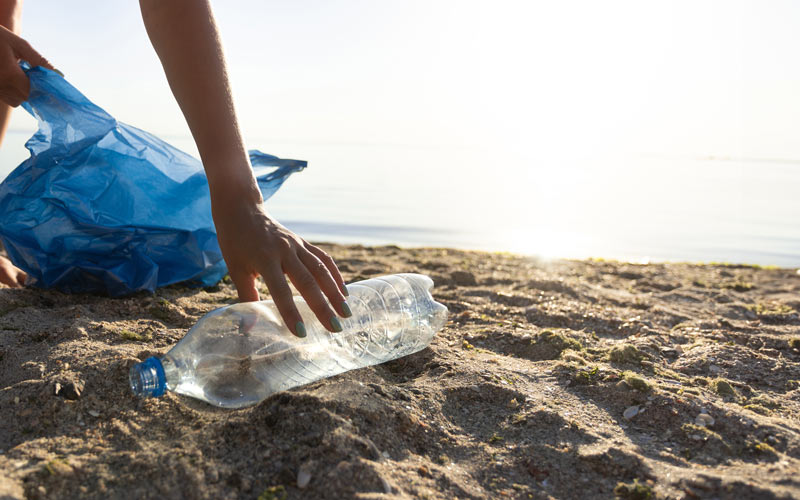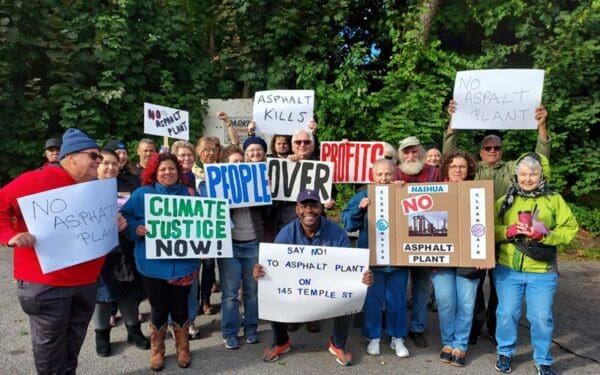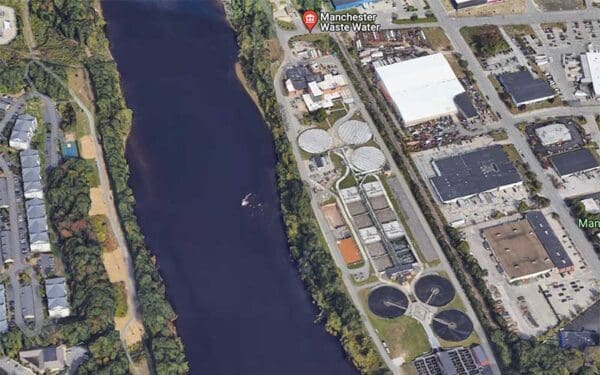
The bottle bill in Rhode Island is gaining traction. That's great news for our communities and the environment. Photo: iStock.
I love my morning walk and bus ride to work. But, when walking along North Main Street in Providence, the nips and other bottles littering the side of the road always trouble me. Discarded containers strewn about the streets, particularly plastic bottles, feel like an assault against our communities. But it doesn’t have to be this way. There’s a proven solution to plastic trash that works: a bottle return program (a.k.a. bottle bill).
Unfortunately, Rhode Island has fallen behind other New England states in adopting one. Massachusetts and Maine, for example, have had these programs for decades. In 2024, Rhode Island could finally get its own bottle bill.
A bottle return program will make a big difference in ending toxic plastic pollution and reducing the waste we produce. That’s why CLF and our partners are pushing elected officials in Rhode Island to pass a strong bottle return law.
A Bottle Bill That Works for Rhode Island
A bottle bill is a recycling system and deposit-refund program for cans and bottles. It places a 5- to 15-cent deposit on each purchased beverage container at checkout. When customers return the empty containers to retail stores or redemption centers, they get back their deposit. Manufacturers then take responsibility for the costs of getting the containers recycled.
It’s not just plastic bottles. Bottle bills can cover all sorts of containers, from glass bottles to aluminum cans to liquor nips. And the more containers the program covers, the more materials we keep out of landfills. In turn, a bottle bill would make it easier for Rhode Islanders to recycle.
Here are three reasons Rhode Island needs a bottle bill:
1. Less Litter in Our Communities and on Our Beaches
Beverage containers often end up as litter in our streets, parks, and waterways. Bottle return systems help reduce litter from all beverage containers, including pesky nips, by up to 84%. A strong Rhode Island Bottle Bill would help our communities address this issue and truly make a dent in our litter problem.
Just recently, a group of volunteers with Friends of the Saugatucket collected over 85,000 miniature alcohol containers during the Great Nip Pickup Challenge. A 10-cent deposit on nips could encourage consumers to return them for recycling, rather than toss them to the side of the road. With a bottle bill, those 85,000 nips would have translated to $8,500 in redeemable deposits.
2. Cutting Down on Harmful Pollution
In 2022, more than 60% of recyclable materials in Rhode Island ended up buried in a landfill. That’s over 116,000 tons of plastic and other materials slowly breaking down and leaching into our soil and water.
Tons of tiny pieces of plastic sit in Rhode Island’s major bodies of water. The floor of the Narragansett Bay alone contains more than 1,000 tons of microplastics. This pollution impacts everyone in Rhode Island, from kids playing at the beach to our fishing communities.
By increasing recycling rates, a bottle bill would prevent tons of recyclable materials from becoming waste. And less trash in landfills and incinerators means a cleaner environment for our communities.
3. Bottle Bills Make Recycling Work
Currently, Rhode Island recycles barely 30% of all beverage containers. Meanwhile, some states with bottle bills show as high as 90% recycling rates. A bottle bill would help improve recycling in our communities and reduce our reliance on harmful and expensive options like landfills.
For recycling to work, the materials must get to a facility in the first place. But, despite best intentions, curbside recycling hasn’t measured up to that task. That means much of the plastic we put in the curbside bins ends up becoming trash. Nationwide, less than 6% of plastic gets recycled.
Bottle bills effectively help ensure that more plastic gets recycled. Here in Rhode Island, the containers we put in the curbside bins often get contaminated by other items (a greasy pizza box or plastic grocery bag, for example). That then makes those containers unrecyclable. As a result, tons of plastic end up buried in a landfill or burned in an incinerator. For glass, the prospects don’t look much better. Instead of recycling glass containers, our state crushes them to use as cover for landfills. By separating beverage containers from waste – making them a better fit to get recycled – bottle return programs tackle this issue.
The best part? Unlike curbside recycling, bottle return programs cost nothing to consumers and communities. It’s up to producers to pick up the tab to handle the containers they created.
A Step Closer to Pass a Bottle Bill in Rhode Island
The bottle bill in Rhode Island is gaining traction – that’s good news! The Ocean State’s legislature has created a study commission to convene state Senators and Representatives, interested industries, and environmental advocates. The group aims to examine litter and plastic pollution, discuss how a bottle bill could offer a potential solution, and consider how this program could work here in Rhode Island.
While some bills may never come out of a study commission, we are hopeful this bill will move forward. But that’s just the beginning. For the proposed bill to become law, state legislators must approve it in the upcoming session.
Help Us Pass a Bottle Bill for Rhode Island
A bottle bill would cut litter. It would hold producers responsible for the cost of recycling the containers they produce. And it would lower toxic pollution from landfills and waste incinerators.
Urge your elected officials to prioritize passing a bottle bill in the coming session. Tell them you support reducing litter and improving recycling in Rhode Island. With litter and plastic pollution engulfing our cities and waterways, we have zero time to waste.




